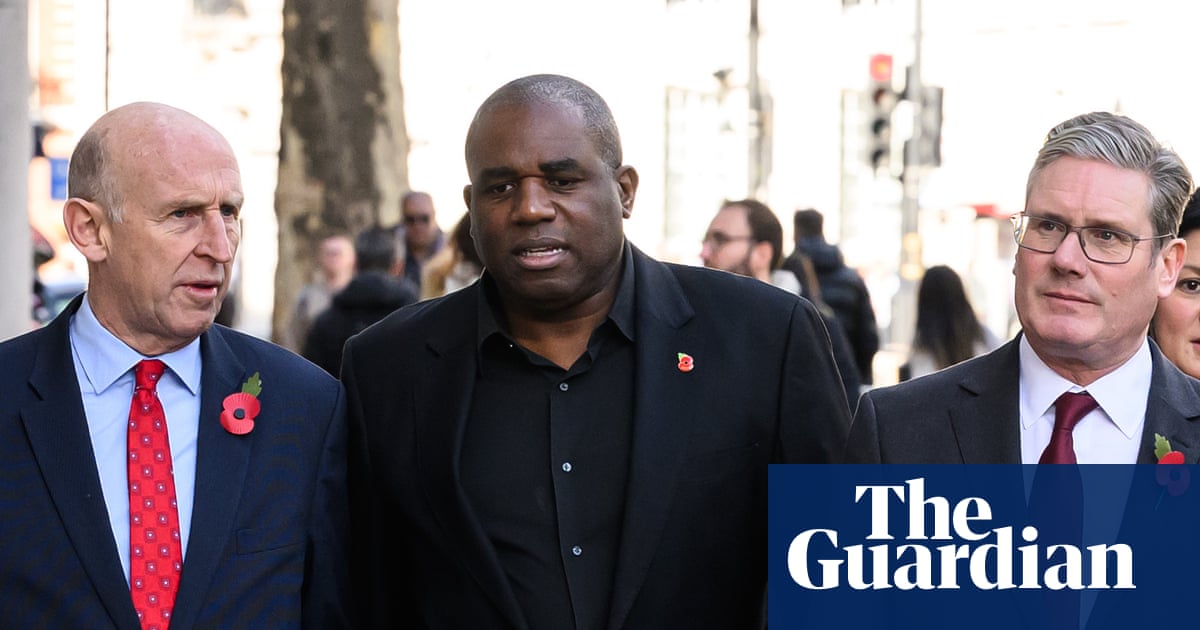
he pandemonium, vanity and mayhem inside No 10 take their cue from the prime minister. The revolution devours its own, and so it was with Dominic Cummings. But out here a pandemic rages. Hundreds of people are dying before their time every week, and thousands are losing their jobs, while the Brexit precipice is only weeks away.
In the shadow of all that, Keir Starmer’s victory in elections for Labour’s ruling national executive committee slipped by barely noticed. It wasn’t a clean sweep – in fact it was so close it went to 37 rounds of counting. Though candidates supported by Momentum won seven of the 15 positions, this vital overall win gives the leadership a stronger working majority on the party’s ruling committee – essential when it comes to appointing party officers, overseeing selections to seats, and implementing the Equality and Human Rights Commission’s report recommendations to reform the disciplinary procedure that failed so catastrophically over antisemitism. The result of that disaster, according to one shadow cabinet member, is that the party has had to set aside more money to deal with court cases than for the important May local elections.
Jeremy Corbyn’s suspension for saying the scale of antisemitism in Labour had been “overstated” dealt a blow to Starmer’s attempt at party unity. Starmer didn’t seek Corbyn’s suspension, and he didn’t order it (that would have been the general secretary). “It’s a nightmare, whichever way it goes,” according to a shadow cabinet member, a sentiment echoed by others.
To readmit Corbyn would condone the fact that he did not accept all of the EHRC’s findings, undoing all Starmer’s efforts to repair the antisemitism scandal; to expel him would be explosive. “Keep him suspended indefinitely,” some say. Others just pray Corbyn withdraws his contemptuous claim about the problem being “dramatically overstated for political reasons by our opponents”. But apology is not in Corbyn’s character.
Members have torn up their party cards. Eighteen, but not all 34, of the Socialist Campaign Group of MPs signed a call for Corbyn’s suspension to be “quickly reversed”. Three former Corbyn frontbenchers retaliated with a call for Starmer to apologise for the party’s election promise of a second referendum, which left leave-backing traditional Labour supporters “in a rage”. No word about the many votes that would have been forfeit had Labour backed Brexit.
Pause here to compare party splits. Boris Johnson’s call for unity rings hollow after he expelled 21 of his remainer MPs of the highest calibre. The Tories are an autocracy: if they had a democratically elected NEC, their grassroots would put the likes of Mark Francois, Steve Baker and John Redwood in the driving seat, alienating many voters. Fractious divisions in both parties are caused by our first-past-the-post electoral system, which drives left and right of each party into unhappy coalitions, like divorced couples cohabiting under the same roof. The only route to power is by seizing hegemony within their party. Instead of choosing, say, a separate left of Labour or remain Tory party, voters must opt for the least worst of two irritable coalitions.
Nonetheless, this NEC victory quietly notches up another step to recovery after Labour’s four general election defeats. Just seven months since resoundingly winning the leadership, Starmer already outstrips Johnson as best leader, knocking him around the Commons every Wednesday with brutally precise charges of incompetence. He has scope to rise higher, too: the research company Britain Thinks found that a quarter of people are still unfamiliar with him. His warmly told life story on Desert Island Discs this week will have done him good: in living memory, parties only win with the most popular leader. Labour is just ahead in most polls, but still well behind on vital policies such as the economy and defence, taking time to shake off its Corbyn aura.
Here’s the week’s encouraging news: the psephologist and former YouGov president Peter Kellner finds signs of Labour recovery in “red wall” seats lost in 2019. The national swing to Labour is 7%, but the 11% swing in those lost towns is enough to win back 40 seats. However, Labour still has “a mountain to climb”, Kellner says. In our deformed electoral system, even with an identical popular vote and assuming an even swing, the Tories would still have 23 more MPs than Labour.
Besides, four years from an election is an eternity: the ruthless party in power will eject Johnson if he still lags. The staggering ineptitude of the government’s handling of the pandemic may be remembered long after vaccine euphoria, as will January’s Brexit bedlam. The chumocracy’s corrupt contracts for friends has cut through with focus groups.
Yet even in this slough of despondency, Tory ratings haven’t crashed: with Cummings’ era of anarchy over, some suggest things can only get better. That’s unlikely, because this chaotic incompetence lies deep in the disruptive DNA of Brexiteer MPs. Infected with that same un-conservative appetite for breaking things, this party looks incapable of change.
Starmer puts no foot wrong, aiming at his targets with a sharp-shooter’s eye, every elephant trap sidestepped. They can’t pin anti-patriotism or anti-security on this state prosecutor. Next they will challenge Labour to vote down a Brexit deal, trying to expose Starmer the remainer. But that’s easily avoided by abstaining: of course Labour can’t vote down a deal, when even a damagingly inadequate deal struck by Johnson would still be better than none.
Some ever-restive Labour supporters ask impatiently for Starmer to shine a brighter light on his future direction. Corbynite social media posts angrily cast him as a “Blair clone”. That could be met with salutary reminders of good done in the Blair/Brown era – but better still, look at his own 10 pledges: they include the raising of top tax, the green new deal and common ownership of rail, mail, water and energy. Launching Labour policies mid-pandemic would be as decadent as No 10’s self-indulgent internal warfare. Labour people should be satisfied for now with the party’s phenomenal recovery from its worst election result in 85 years – and their leader’s growing public recognition.
• Polly Toynbee is a Guardian columnist











